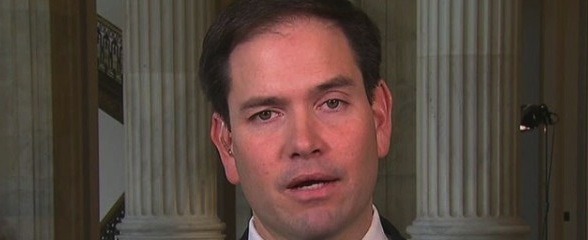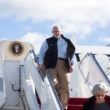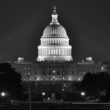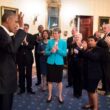Within an hour of President Barack Obama’s announcing normalization of relations with Cuba, and the release of Alan Gross, an American imprisoned on the island for five years, Florida Senator Marco Rubio was making the rounds of cable news outlets.
On CNN, Rubio, whose father fled Cuba, repeated the claim he has made in the past. Alan Gross was “taken hostage” in Cuba while he was trying to help the island’s small Jewish community. CNN’s Wolf Blitzer bought right into it.
“He was providing electronics equipment for the small Jewish community in Cuba,” he said.
Both are incorrect.
What might turn out to be one of Barack Obama’s most “historic” achievements was midwifed by a failed USAID covert mission, of which the president was unaware until it unraveled.
Gross was arrested for conducting a covert operation on the island, violating Cuban law. He was using the Jewish community as cover to set up a communications network, not helping it.
Rubio is a rabid anti-Castro ideologue, whose father’s story is essential to the senator’s presidential campaign narrative. Blitzer should know better.
One of the ironies of the event that triggered the apertura in U.S.-Cuba relations is that it began with a bungled covert operation outside the legal mandate of the U.S. Agency for International Development (USAID) in a program whose funding was ramped up by the George W. Bush administration until Obama scaled it back.
The budget for funneling communications technology into Cuba jumped from $3.5 million to $45 million during Bush’s two terms, according to Associated Press reporter Desmond Butler, who reported the story from Havana and Washington.
From those earmarked funds, Gross was paid more than $500,000 as a USAID subcontractor.
The details revealed about Gross’s mission illustrate why USAID should not conduct covert operations.
Gross spoke very little Spanish and was trying to teach himself the language with the aid of a Rosetta Stone computer program.
He is Jewish and presented himself as a member of a Jewish humanitarian group working to provide internet service to Cuban Jews.
Jews in Cuba didn’t need internet access, because they are one of a few privileged groups on the island who already had it. Two years before Gross began working in Cuba, World ORT, a Jewish educational organization, funded internet projects that linked six Jewish communities in Cuba.
Gross never told leaders of the Jewish community in Cuba that he was a U.S. government subcontractor, although their cooperation with him put them at considerable risk.
The 18-page “sentencia” released by a Cuban court on March 11, 2011, describes one incident in which Gross failed to tell Jewish community leaders in Havana that he was installing wireless equipment in their synagogue, even though collaborating with an agent of the U.S. government could have landed them in jail.
In this instance, it made little difference. At least not to the Cuban government. Gross has been under surveillance since his first trip to Cuba when one of his initial contacts turned out to be a double agent.
Gross also took risks with members of Jewish humanitarian groups traveling to Cuba, deceiving them into carrying in their luggage electronic items illegal to import into Cuba.
Three of his “mules” are named in the Cuban court’s “sentencia,” which might be compared to a finding of facts. They were from Jewish synagogues and humanitarian groups in New York and South Florida, and never had a clue they were smuggling contraband.
Among the items smuggled were BGAN satellite links, which would allow the wi-fi hotspots that Gross was setting up to circumvent government servers.
Cuban authorities produced an inventory of every illegal electronic device that Gross and the unwitting “mules” working with him had smuggled onto the island.
On one occasion in January 2010, after Gross was detained, a USAID official got anxious about the agency’s use of “mules,” sending the following message (in an email I obtained).
If you knew that the risks associated with sending travelers to the island were high, would your travelers still want to go? Why or why not?
Please complete the attached table and return it to me by COB Thursday 21 January. You will note that we are not asking you for the travelers’ names. We are also not asking for information about mulas. We’re interested in programmatic travellers who spent time on the island.
Beyond putting these American Jewish “mulas” at risk, Gross risked upsetting the delicate equilibrium established between the Castro regime and Cuba’s Jews, who enjoy freedoms many other Cubans do not.
“We have achieved a modus vivendi with the Cuban government,” Arturo Lopez-Levy, former secretary of Cuba’s B’nai B’rith Maimonides Lodge, told The Forward. “We have freedom of religion, Birthright trips. Why do we have to risk our status for this?” (Lopez-Levy was living in the United States when he was interviewed.)
If this operation doesn’t seem to make sense, it didn’t.
Penetrated by Cuban intelligence from the onset, and tracked by Cuban authorities until it’s conclusion, it achieved nothing.
When Gross was arrested—not “taken hostage”—in December 2009, on his fifth trip to Havana, he was carrying with him, according to Butler’s AP report,” a mobile phone chip that experts say is often used by the Pentagon and the CIA to make satellite signals virtually impossible to track.”
If the Cuban government wasn’t then in possession of that technology, it is now.
Of course, Gross’s Cuban initiative did achieve something other than what its architects in the Bush administration intended.
What might turn out to be one of Barack Obama’s most “historic” (as Blitzer described it) achievements was midwifed by a failed USAID covert mission, of which the president was unaware until it unraveled.
Obama’s willingness to seize the initiative was, of course, the big factor.
It all concluded on the first day of Hanukkah with a jubilant Gross ending a Washington press conference, saying:
“I support the president.”
It might turn out that the president has made Rubio hostage to a narrative that no longer has much currency.
—Lou Dubose
December 18, 2014
Lou Dubose is the editor of The Washington Spectator.







You undoubtedly allow it to become look not thay hard with all your presentation on the other hand in discovering this disorder to become in fact the one thing that I imagine I’d in no way realize. Seems like too difficult as well as wide in my opinion. Now i am looking ahead in the next offered, I’m going to aim to find the understand than it!